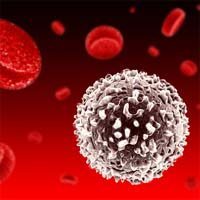White Blood Cells May Predict Mesothelioma Survival

Certain types of white blood cells may hold important survival clues – as well as a new treatment target – for mesothelioma patients and their doctors.
Malignant pleural mesothelioma can result when inhaled asbestos fibers trigger physiological changes in the lung tissue. Medical science has yet to find a reliable way to stop the spread of mesothelioma once it begins and many patients succumb to this disease within a year or two after diagnosis.
But mesothelioma tumors are known to produce an abundance of myeloid cell stimulating factors, chemicals that trigger the body to produce extra white blood cells. Now, a team of researchers at Brigham & Women’s Hospital in Boston believe that looking at the levels of these white blood cells, called monocytes and macrophages, may help predict which patients are more likely to do well and may open the door for mesothelioma treatments that target the immune system.
The researchers studied the cases of 667 mesothelioma patients who had cytoreductive surgery at Brigham & Women’s between 1989 and 2009. They examined each patient’s preoperative levels of circulating monocytes and compared it to how well they did after surgery. They also looked at level of tumor-infiltrating macrophages, the white blood cells typically charged with the task of surrounding and absorbing foreign invaders. These macrophages comprised an average of 27% of the tumor area.
The median survival for all patients in the study was 13.4 months, although those with the rarer non-epithelial types of mesothelioma did not live as long. These patients were found to have significantly higher levels of monocytes. In fact, the higher the monocyte count, the lower the chance of survival – regardless of tumor type. When the team looked at macrophages, they found that “the degree of macrophage infiltration was found to be negatively correlated with survival in patients with non-epithelial malignant pleural mesothelioma, independent of disease stage.” Macrophage levels did not appear to correlate with survival in patients with epithelial mesothelioma.
Because the levels of both monocytes and macrophages are linked to mesothelioma prognosis in some patients, the researchers concluded that both types of cells may prove to be “novel targets” for immunotherapy treatments in the future.
Sources:
Burt, Bryan et al, “Circulated and tumor-infiltrating myeloid cells predict survival in human pleural mesothelioma” April 26, 2011, Cancer, Vol. 111, Issue 11.





